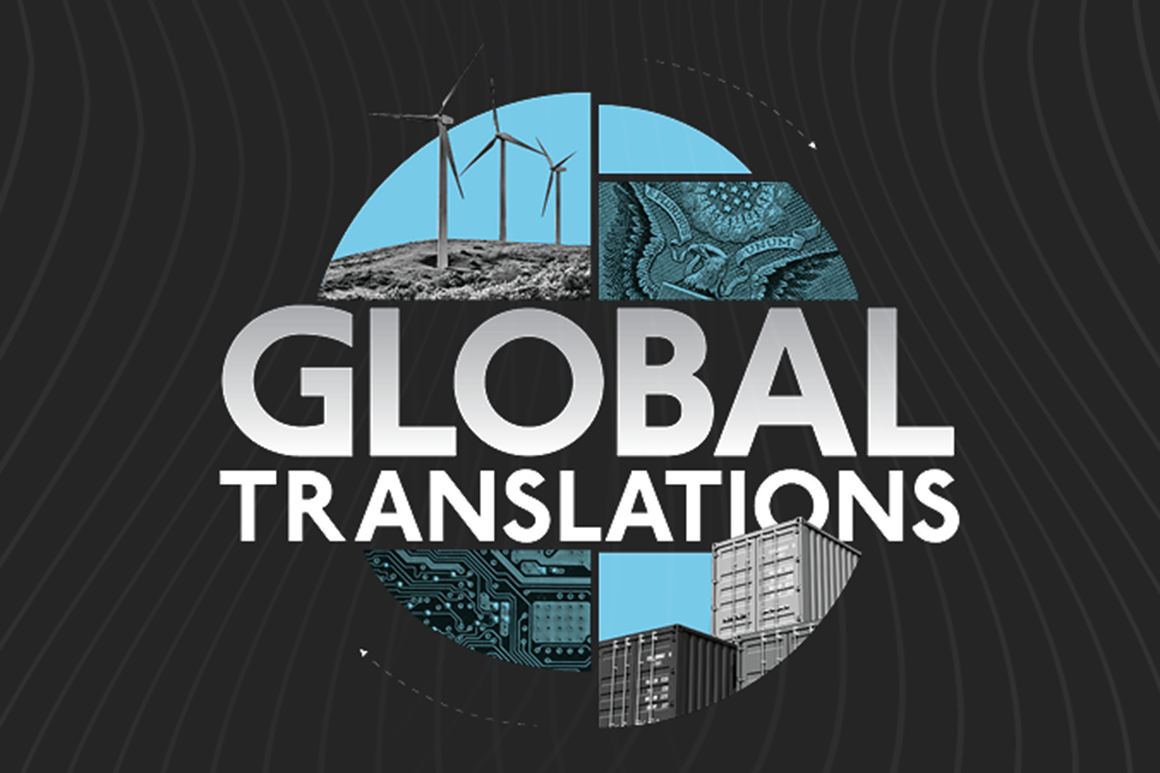Welcome to POLITICO’s new Global Public Health Spotlight — an extension of the Global Translations newsletter. Each week we track major issues facing the globe. Sign up here.
For some people at high risk from Covid-19, the arrival of a vaccine may not be the godsend it’s expected to be.
Experts are concerned that, as with some existing vaccines, a future coronavirus shot may not be equally effective for different populations. Among those: the one in seven people around the world living with obesity, who are at risk of developing serious forms of Covid-19.
Vaccines against flu, rabies, tetanus, and hepatitis A and B are relatively less effective in obese people. The causes are not definitively established, but may include the fact that inflammation caused by obesity changes the behavior of cells that fight infection, fat tissue makes it harder for the doctor to reach the muscle with the vaccine needle, or the body requires a higher vaccine dose, said Catherine Andersen, an assistant professor of biology at Fairfield University in Connecticut.
“Let’s not come up with a vaccine that misses out on helping those people, therefore keeping the virus going for everyone,” said Johanna Ralston, chief executive of the London-based World Obesity Federation, which represents scientists, doctors and researchers from around the world.
One way to avoid that is to include people with obesity in the ongoing testing of vaccines being developed to fight Covid-19, the disease caused by the novel coronavirus — which has sickened tens of millions and killed hundreds of thousand people around the globe.
“The key is who gets included in the clinical trial,” said Dr. Tom Frieden, President and CEO of Resolve to Save Lives and a former head of the CDC. “And that’s very important, because if you don’t study in a clinical trial, you cannot make conclusions.”
With trials that usually take years now being compressed to months, “we have to be very careful and very transparent about what gets studied and what gets done,” Frieden said.
People with obesity have been excluded from studies for other vaccines in the past because researchers feared that some of the health issues associated with the condition could confuse trial results, Ralston said.
So far, researchers have said little publicly about whether late stage tests of the most promising vaccines against coronavirus are including people with a body mass index equal or higher than 30. The measure, used to define obesity, represents a person’s weight in kilograms divided by its height in meters.
Pfizer doesn’t have any restrictions on weight for the 30,000 people around the world participating in the last phase of testing for the Covid-19 vaccine it is developing in partnership with Germany company BioNTech, a company spokesperson said.
A global problem & a pandemic
While it’s been a problem in many Western countries for decades, obesity is now increasing around the world, affecting people from virtually every continent. The proportion of obese people in higher income countries such as Kuwait, the United States and New Zealand is as much as 10 percentage points higher than in middle-income countries like Mexico and South Africa.
It has long been associated with chronic conditions such as diabetes and heart-related problems, but it is now becoming clear to more people that obesity also impacts the body’s ability to fight infections and, in some cases, to prevent them.
Although more conclusive research is needed, the existing evidence from the pandemic so far suggests that people infected with coronavirus who are overweight or obese are at an increased risk of Covid-19 complications and death compared to those with a healthy weight, according to a July report from Public Health England, a British government agency.
In Mexico, which has the third highest number of Covid-19 deaths in the world, after the U.S. and Brazil, the government said that high blood pressure and obesity were the main underlying conditions for the more than 58,000 people who have died.
Up in the air
Depending on what data comes out of the vaccine tests, there could be ways to improve the response in people with obesity, such as giving them a booster shot one year after the first or two doses of the vaccine instead of one, said Dr. Jarbas Barbosa da Silva Jr., a Brazilian doctor who is the assistant director of the World Health Organization’s regional office for the Americas.
Meanwhile, the World Obesity Federation’s Ralston said that obesity needs to be seen as a disease like other chronic conditions rather than just a risk factor for them. It’s not enough to tell people to eat less and move more, she said, noting that the role of genetics and other causes of obesity are still not well understood.
Obesity should be seen “as a disease which requires treatment and not judgment, which is often what it gets now,” Ralston added.
COVID VACCINE RACE LATEST
What other groups a coronavirus vaccine may not work for: Children and pregnant women, who are typically excluded from tests for ethical reasons.
Drip-drip on Russian vaccine: More countries are offering to host clinical trials for Russia’s coronavirus vaccines, and the World Health Organization said it has begun talks with Moscow to understand more about Sputnik V, which the country approved earlier this month before critical testing phases were completed. Saudia Arabia will test the vaccine, Russia said.
Chinese scientists have offered to carry out joint vaccine trials with their Russian counterparts in what could be seen as a vote of confidence following Moscow’s decision to rush through approval.
China’s rogue vaccinations: Meanwhile, an increasing number of people in China are getting vaccinated outside clinical trials. Frequent business travelers are among those receiving experimental shots, even if they are not part of tests to check whether they work and are safe, according to media reports.
U.S. incentivizes speed in deals with vaccine makers: The U.S. government is tying payments for coronavirus vaccines to companies hitting ambitious timing milestones for production and approval.
Latin American countries working on their own vaccines: Uncertain about when and if they will have access to vaccines produced and approved in other parts of the world, Latin American countries including Mexico and Argentina are working to develop their own vaccines against coronavirus.
Latest deals: Australia struck a deal with AstraZeneca to manufacture the vaccine the pharma company is developing with the University of Oxford and offer it for free to all Australians. Prime Minister Scott Morrison suggested the vaccine would be made mandatory in the country, but then backtracked. “There are no compulsory vaccines in Australia,” he said.
The European Union Commission concluded talks with German company CureVac to secure 225 million doses of the vaccine the company is developing.
GLOBAL HEALTH SNAPSHOTS
By the numbers: Millions of people are going to die before the pandemic is over, billionaire health philanthropist Bill Gates told The Economist. Most of the deaths will be indirectly caused by the pandemic, which has strained health care systems and economies. Gates expects the pandemic to be over by the end of next year, he said.
Case in point: Malaria, tuberculosis and HIV/AIDS contributed to many more deaths than Ebola during the 2014 Ebola outbreak in West Africa, Gates wrote. The same could happen now.
Africa: Flu was all but eliminated in South Africa this year, thanks to the coronavirus. The country’s National Institute for Communicable Diseases (NICD) has three laboratories that would normally record more than 1,000 cases of flu between April and August — winter in the Southern Hemisphere. As the 2020 season ends, they have recorded just one. Other countries in the Hemisphere have also reported lower numbers than usual.
Europe: Germany and France want more funding and power for the World Health Organization as part of sweeping reforms.
Asia Pacific: New Zealand’s Prime Minister Jacinda Ardern delayed elections, scheduled for mid-September, by a month, after the coronavirus reappeared in Auckland. During a campaign rally, U.S. President Donald Trump said the country, which was held as an example around the world for its response to the pandemic, is experiencing a “big surge.”
Ardern’s response: “I think anyone who’s following Covid and its transmission globally will quite easily see that New Zealand’s nine cases in a day does not compare to the United States’ tens of thousands, and, in fact, does not compare to most countries in the world.”
Latin America: Members of Brazil’s Kayapo indigenous community protested against the lack of support from President Jair Bolsonaro’s government to combat the pandemic, as well as to demand an end to deforestation.



















